Evita Joseph Asare: Being a mechanical engineer gave me the confidence to start a makeup business
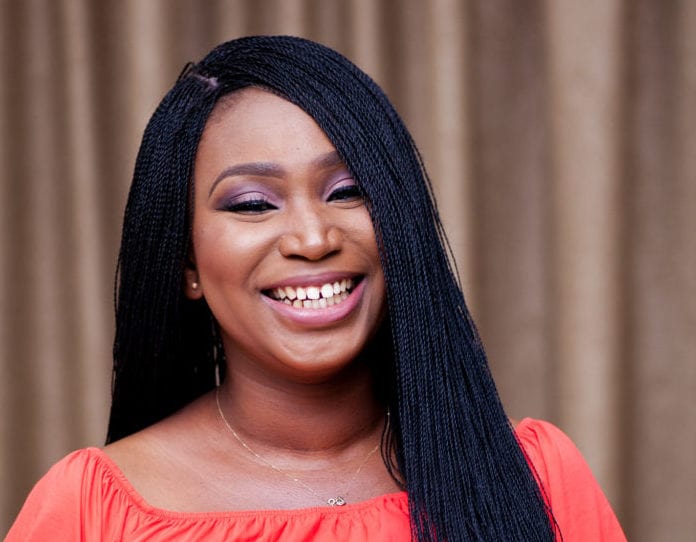
[bctt tweet=”The story of Evita Joseph Beauty Store begins with the story of Evita a mechanical engineer” via=”no”] Having received two awards as a pacesetter in online retailing of makeup products, the Evita Joseph Beauty Store continues to gain recognition in the Ghanaian beauty industry. The story of the brand begins with the story of Evita Joseph Asare, an erstwhile mechanical engineer whose one visit to Paris changed the course of her life. Starting from an engineering class of only 4 women in a class size of 126, Evita has channeled her passion for designing and building machinery to designing and producing makeup products to enhance the modern woman. SLA contributor, Emma Kwenu Smith, caught up with the CEO of EJ Makeup, Evita Joseph Asare, to share her business journey and some of the significant milestones all SLAyers can learn from. Mixing Mechanical Engineering and Makeup – how did the journey begin? As an active member of Women in Engineering (WINE), I got the opportunity to attend a 6 weeks course in France. There, I got indoctrinated into the world of beauty and makeup. My first experience with makeup was in a MAC Store where I was told I needed a concealer. Upon arrival to Ghana, I jokingly told all my colleagues in the office they needed concealers too. That trip gave me access to products and since, I have always been complimented on how I wear my makeup. Gradually, it dawned on me that this was a good opportunity to challenge myself to create a sustainable business in the beauty industry. I got some books from Bobbi Brown and Kevin Aucoin and I enrolled in a beauty school during my maternity leave. Right after, EJ Makeup was born. Additionally, what would you say is the innovative idea behind Evita Joseph Makeup? Our vision is to provide world-class beauty and makeup product that flatters the women of color, boosting their confidence to stand up and stand out. I started a blog to share my looks, products review and others. Through my blog, I was able to establish trust among my readers. Many people asked for product recommendation and these products were difficult to find locally, so I started my online beauty store – EJ Beauty Store. We focus on products that flatter skin tones and yet, are basic to work with. Most of the products are made for professionals, so we make sure that our products are easily available, are of good quality and also are competitively priced. [bctt tweet=”In 2014 and in 2016, we won the Best Beauty Retail Store in Ghana- Evita Joseph Asare” username=”SheLeadsAfrica”] How has your engineering background played a part in managing the Evita Joseph business? Engineering has dared me to be stronger– it gave me the confidence to try new things outside my scope. Looking at our past, engineering was not the forte of women. Gradually, we are bridging that disparity, but for a woman like me who found herself then in a male dominated industry, I was inspired and challenged to do more. And that has not changed. Through engineering, I have learnt to take up the daunting duties and I’m able to contextualize the tools of my profession. From conceptual product development stages to the production stage, I now understand the process of building and re-engineering concepts to meet customer needs. What skills do you draw from your background as useful in managing the EJ business? Critical thinking and analysis are the bedrock of every engineer. Since starting EJ Makeup, it has proved to be a very relevant skill. Also, contrary to popular opinion, engineers are also tasked with marketing their design ideas to stakeholders. With this background, my marketing, communication and networking skills have been honed since I have to convince others that EJ Store is the go-to place for all your makeup needs. How has the makeup space transformed over the years and what is the future of makeup and the beauty industry in Ghana and also globally? Globally, makeup is booming and Ghana is no exception. Every day, I wake up to a new social media page for a makeup artist in Ghana. The industry is growing and getting more competitive. MUAs of today are highly educated individuals -some having BSc and Masters degrees. The industry is no more for the less educated as it used to be. The future of makeup in Ghana is both promising and threatening. It provides a market for beauty brands like Evita Joseph who retail original local brands globally and strategically research, design and manufacture suitable products. Conversely, the challenge that we face is in controlling the influx of fake beauty products on the market aimed at taking advantage of vulnerable and unsuspecting users. The beauty industry is thriving, and many are being enticed to jump in and make money off this trend. What pointers will you give anyone who also wants to enter the industry? Well, start by having a mission and vision– it gives you a direction. Also, too many of us jump into a business without doing due diligence, so do your market research and do it well. This can be as simple as knowing your targeted clients or as complicated as understanding the very ingredients that are not suitable for specific skin types- the last thing you would want on your hands is using ingredients that are damaging to people’s faces. Remember to always leave room for feedback, this is how you will grow. [bctt tweet=”Finally, do not worry about starting small- good things take time- Evita Joseph Asare” username=”SheLeadsAfrica”] If you’d like to share your story with She Leads Africa, let us know more about you and your story here.
Yvonne Amankwah: There is less consideration for Special people in recruitment

[bctt tweet=”A lot of organizations in Ghana prefer to work with able-bodied individuals” username=”SheLeadsAfrica”] Yvonne Amankwah is a young leader passionate about her contributions to societal issues and education for the less privileged. What struck SLA contributor Ugochi Obidiegwu most about her business is the fact that Yvonne made a conscious decision to involve people living with disabilities. This is something a lot of people do not consciously think about. Tell us about your educational background I am blessed to have practical experience in corporate work, communication and societal development works which enable me to effectively contribute to solving problems. I had the opportunity to learn and develop my leadership skills from President Obama’s YALI initiative Nigeria cohort-1 and my engagements as the ex-president of Enactus Radford University College chapter broadened my scope. Recently, I completed my basic knowledge in Deutsch at Goethe Institute. I also hold a first degree BSc in Business Administration where I majored in human resource. During my degree program, I successfully combined my studies with work, showing I could to be self-motivated, organized, capable of working independently and able to utilize my skills and abilities effectively. Why did you choose to work with Special staff? 90 percent of the time, when there is an employment opportunity the last people we look at employing are people with disabilities. A lot of organizations in Ghana prefer to work with able-bodied individuals whereas there is less consideration for the Special people. This is what motivated me to carve my niche by working with people with disability. I feel they can be powerful when empowered to do more for themselves. I am deeply committed to training people with disabilities giving them an opportunity to better their lives. How do you communicate to ensure your desired business goals are achieved? The importance of communication cannot be overstated therefore it’s one of the ways business goals can be achieved. For the speech and hearing impaired we provide a note taker, a sign language interpreter, written materials or printed scripts. In some situations, we keep paper on hand so the person can write out words that staff cannot understand. Besides, we use training videos which is very useful where interpretations may not be available. What led you to start your own business? A few years ago, I learnt an important lesson from my entrepreneurship lecturer back in college, Mr. Alan Dwomoh Sarpong which earned him the place as my mentor. He told me his secret to success was “looking at each day as a new opportunity to be your very best. Set high goals, be honest, never say no, and work with people who share your passion for doing their best”. [bctt tweet=”My mentor’s secret to success is looking at each day as a new opportunity to be your best” via=”no”] Since then I injected this advice into my life as I try to live up to it every day. This was the realization of my dream that I could impact the lives of people by my handiwork. As the CEO of a new startup Vons Brands Limited, a detergent manufacturing company where we produce liquid soaps and home cleaning detergents, I find it important to teach others this trade so they can benefit from it. I really love what I do and I try to surround myself with people who share similar interest. I thrive on this type of environment. What are the challenges you have encountered in the course of doing business? I believe entrepreneurship is much broader than creation of business, I define it as a mindset and a way of thinking and acting it but that notwithstanding, challenges are inevitable. I have many but I work hard to overcome them. Finances, high-priced raw materials, distribution are just a few of the challenges but have managed to overcome them. I have a practical approach to problem-solving and a drive to see things through to completion. One of my keys to thriving in my space is to learn from the failures of others by having the humility to learn from their mistakes. It has always led me to success. The dark side of being an entrepreneur can never be skipped, but there is always a way to survive the harsh realities of entrepreneurship. One has to learn to live with risk and always be ready to improve by challenging the usual. [bctt tweet=”Entrepreneurship is broader than creation of business, I define it as a mindset” username=”SheLeadsAfrica”] Do you think the business environment is favourable to African young women? The business environment is favourable to African women entrepreneurs who become the voices of change despite the challenges. These barriers can be broken through thought leadership. It’s time to fight the challenges to enhance our contribution to development in Africa. At first, it’s difficult to break through but with time and consistency, you thrive in the business environment. There are a lot of opportunities for women to explore and be successful at, they should not be discouraged by the physical obstacles they see. They should rather feel empowered to overcome any challenge that sets in on their journey to success. What would you advise a young woman who wants to start a business but is paralyzed by fear? Fear is weakness! It cripples your ability to explore and be successful. Being bold is a new era. Get that weakness out of your mind and spirit. It only exists when you allow it into your thoughts. Success and fear are enemies so you should always choose one side. Never be with the losing team which is fear. Get out of your closet, go out and make things happen because you can. The environment for women in entrepreneurship is great against all odds and this is the redefined power given to us women. Women don’t lack confidence, don’t be paralyzed by fear it’s our to turn elevate our generation! If you’d like to share your story with She Leads Africa, let us know
Ethel Cofie: Share your knowledge, inspire others
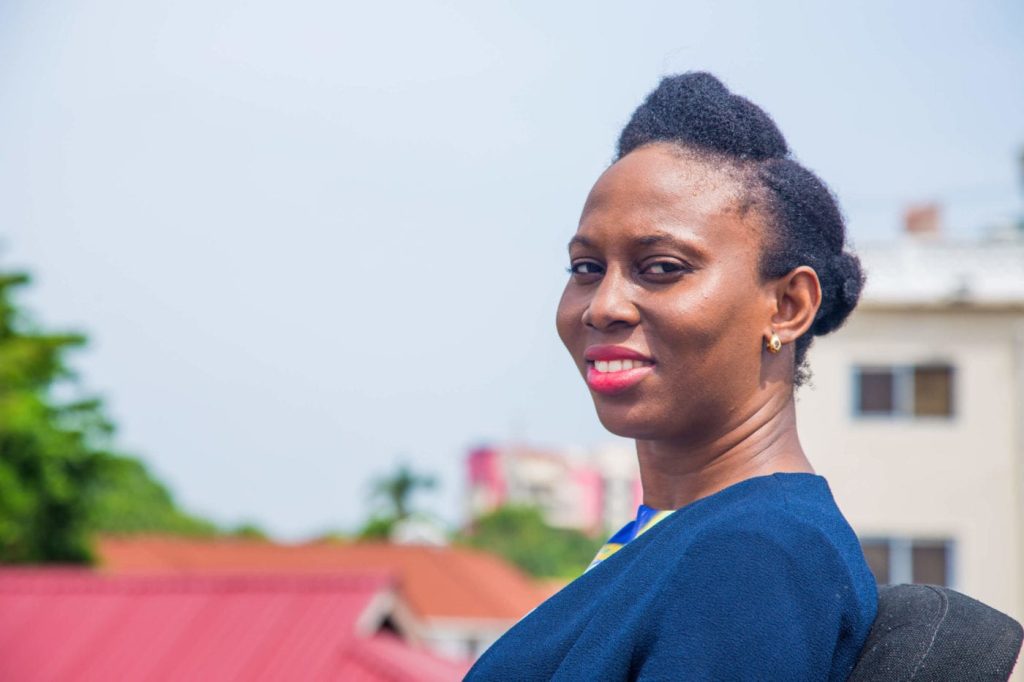
[bctt tweet=” I have always loved the idea that technology can allow you to create – Ethel Cofie” username=”SheLeadsAfrica”] When Ethel was 18 years old her father sent her to computer diploma class, so she would keep busy. There, one of the lecturers made a life-changing statement to Ethel, “the computer is dumb and the computer is only as smart as the one who writes its logic”. That simple line led to Ethel choosing to do a degree in computer science and then a master’s degree in Distributed System on scholarship in the UK (the only female in her specialization). Ethel made her first attempt at entrepreneurship with a software firm in her Ghana which failed. Because she was self-funded, Ethel lost her savings in the process. Not daunted, Ethel went back to full-time employment across Ghana, and Nigeria, Sierra Leone building innovative technology or managing teams that build innovative tech. She eventually found her way back into entrepreneurship and is now an award-winning entrepreneur. Her software company EDEL Technology Consulting won the IT Consulting Firm of the Year, as adjudged by the Ghana Telecom and IT Industry. In the last few years, Ethel Cofie has gone from being named one of the top 5 women influencing technology by the Mail and Guardian (South Africa) to winning the Most Influential African Woman in Business and Government: ICT Category by CEO Global. How did you get the idea/concept of EDEL Technology? As I sat through my first programming class, I thought, the computer is only as smart as the one who writes its logic, and I’m smart so why can’t I? I had just signed up to my first computer training class after my secondary education. It was all new and exciting for me –learning about computers. This first lesson revolutionalised my life and the way I felt about computers. It’s one of those aha! moments of my life. After 6 months of the computer training course, I decided that a career in computing was what I wanted; I, therefore, applied to Valley View University to pursue a BSc course in Computer science. I have always loved the idea that technology can allow you to create and make drastic changes in industries in technology. So I knew I was always going to become an entrepreneur. In my mind, I was going to build an organization around technology. I chose to focus on building an IT Strategy and Consulting company so I can strategically work with companies to build new revenue streams and make them more efficient. What has been your biggest hurdle so far? In business, there are challenges– times you feel like giving up. Times you feel you made a mistake. Like all entrepreneurs, the biggest challenge is the self-doubt, and also the negativity from people you think should support you. The story is no different from mine. Leaving a lucrative corporate job to start my own business was a challenge. [bctt tweet=”After failing the first time round, Ethel Cofie went on to be an award-winning enrepreneur” via=”no”] Has there ever been a time when you thought of giving up? What kept you going? I left my lucrative job and very comfortable life in London and returned to Ghana with the intention of starting a Software Business of my own (EDEL Technology Consulting). I told nobody about it. Not even my parents, because considering that they were the typical African parents, I knew they would object. They only got to know of my intentions after I had shipped all my belongings and arrived in Ghana. Everybody thought I was insane. And guess what, I failed completely at my first attempt. A lot of my working life was spent in the United Kingdom, where people understood technology. However, I painfully came to understand what it meant to build technology in Ghana, where at the time most people did not understand what it meant. You can just imagine what my parents and people said at the time. The blow was overwhelming because I had spent all my savings on this new adventure. But I didn’t let this deter my vision. I plodded on, mastered courage and took on a few jobs, did a lot of projects and started EDEL Technology consulting version 2 and I am glad to report that the second version has grown to the point where we have clients not only in Ghana but in the United Kingdom. What is your favourite thing about the tech industry? I love the ability to create and change industries and change how businesses use technology to solve business challenges. This is why I love technology –we can change how the world works. [bctt tweet=”Ethel Cofie: This is why I love technology –we can change how the world works.” username=”SheLeadsAfrica”] As one of the top 5 women influencing IT in Africa, to what do you attribute your success? I’m always learning and sharing. I’ve found that nothing is more rewarding than learning new things, and this has always been my mantra. You cannot over-learn. Another thing is also to share. Share your knowledge, inspire others, hence my fixation with getting more girls into tech. I also believe that to be successful, one must maximize their opportunities and believe in the purpose for which was born. Which season is the toughest for your job? How do you overcome this? We work with businesses so our seasons are based on general economic trends. We provide solutions to businesses so when business is booming, our services are also in high demand. If you’d like to share your story with She Leads Africa, let us know more about you and your story here.
Nana Ama Agyemang Asante: Women journalists endure misogyny, sexism and general disrespect in their line of duty
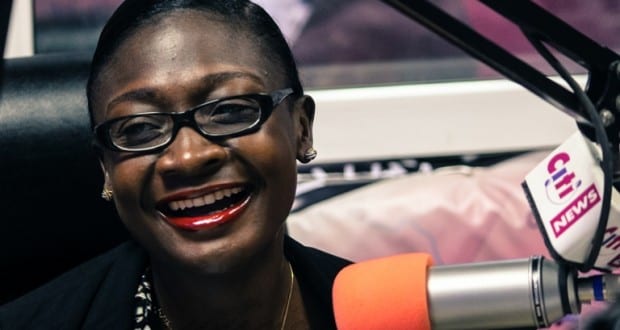
[bctt tweet=”I’ve been called ugly, angry and disrespectful because I shared my view on a national conversation” via=”no”] It’s a busy Monday morning. You are stuck in the horrid traffic on your work commute to the country’s capital, Accra, silently cursing yourself for not having left home earlier. You refuse to let the sun’s heat, drivers’ honkings, and conductor’s arrogance get to you. You know you need your daily dose of whatever seems to be happening in the nation so you tune into the one station where it all makes sense; Citi FM. As usual, there’s a lively discussion. There are three male voices and the one female voice. Her voice quite strident but just right. Her tone is firm and her take on the issue is different and outrightly expressed, occasionally warranting an interjection from the host. Yet she stands her ground. Unwavering. She’s the lone wolf. Unpopular yet resolute. Fellow SLAyers, let me introduce you to Nana Ama Agyemang Asante, Deputy Online Editor at Citi FM, one of Ghana’s top radio stations. With a solid background in human right activism and broadcast journalism, Nana Ama continuously remains a strong female voice, relentlessly advocating for the cause of women, children and the underprivileged. She shared her life story and musings with SLA contributor Emma Kwenu Smith. Growing up, have you always wanted to be a journalist and why? Not really. My aim was to become a writer and a lawyer. A lawyer because my father decided that law was where my love for reading would be useful. I didn’t really care for law, but again, my dad said writers always ended up broke so combining law and writing was the compromise. I stumbled into journalism when I started listening to Matilda Asante, who was an anchor at Joy FM. I wanted to be able to query officials without fear or favour like she did. People argue that female journalists endure more compared to their male counterparts. There are issues of misogyny, sexism and being constantly intimidated. Have you had any such experiences and how do you manage this? There is no debating this. There are men constantly hitting on you because you need an interview or information, colleagues who think they are smarter because they are men and officials who will give information to only male journalists because they are considered more serious. To be an outspoken woman journalist for me worsens it all because our Ghanaian culture requires women to be deferential at all times, to be seen but not heard. And so being on radio dispensing opinion, sometimes very harsh commentary on the powerful and privileged annoys many. The abuse is intense on social media where people can troll you for days. It’s hard to understand because I believe I must have a seat at the table, to provide a woman’s perspective on issues. I try not to let it get to me, especially the personal attacks that focus on my looks. I own a mirror, I know I’m fabulous. For some days, the intensity is unbearable especially when I think that my male colleagues do not get attacked for their looks. Sometimes I respond, other times I ignore people. I’ve noticed, nothing offends many internet trolls more than being ignored. So I am mastering indifference. You have developed a strong character on the Citi Breakfast Show as a staunch feminist. Have you always been this way, and what was the pivotal point for you? I’m not sure there has been a pivotal point, I have always been opinionated -a rebel of sorts. I suppose this is because my dad insisted on hearing our opinions on issues even if he disagreed. I haven’t always identified as feminist, though I believe I was one even when I didn’t know the language and the label. When I came across the label in Women and Development class in University, it wasn’t cool to call oneself a feminist. It was what boys called you for being stubborn, and I did care about likability so I didn’t call myself feminist for a long time. But through it all, I had my opinions and I’ll challenge sexist notions of women. I think my dad is the reason I became a feminist. He had eight daughters, it was important for him to raise us to be independent women. So he went through, sometimes extreme measures to make sure we studied, taught us the needed skills to make it with or without partners. I suspect the reason I come across on the Citi Breakfast Show as a staunch feminist (which I am) is that radio amplifies what I say. Your blog continuously explores the flaws in how the Ghanaian society (and by extension, Africa) poorly handles issues relating to women. How do you envisage an egalitarian society with regards to gender and sex? Well, again, I’m not sure an egalitarian society is possible, at least not in my lifetime but if we could make it happen, that would be a place where women are seen as equal human beings and have access to the opportunities and privileges available to men. Which means, our bodies and sexual choices would not be policed. In that society, men wouldn’t have to embody the toxic masculinity that harms them and us. If you could, what are some of the current journalism practices in Ghana that you would like to change? Journalists are overworked and underpaid, if I could, I would advocate for better working conditions and scrap the practice of paying “soli”. I really think “soli”, which is this practice where newsmakers and event organizers pay journalists who attend their events or interview them, is not good for the industry. [bctt tweet=”Stories get skewed/buried if someone’s meals depends on the benevolence of news-makers.” username=”SheLeadsAfrica”] What can women journalists do differently to enhance the cause of women empowerment in Africa? Women’s voices are often missing from news stories, even former dominant voices are being erased. I believe it is up to
Emefa Quashie: From beauty queen to farmer and social entrepreneur

[bctt tweet=”Mamagah Farms is an agricultural social project run by beauty queen Emefa Quashie” username=”SheLeadsAfrica”] It’s not every day that you hear the story of a beauty queen owning a farm. But the story gets bewildering when you notice that instead of just employing people to work on the farm (like some “modern” farmers do) she goes hands in and knee deep -getting her well-manicured nails in groveling dirt as she furiously uproots and plants, as she waters and nurtures and as she satisfyingly harvests and reaps. Meet Emefa Quashie. A present farmer, social entrepreneur and an erstwhile beauty pageant winner. When she’s not furiously uprooting and planting on her farm (Mamagah Farms), she is lost in her studies for her MBA in Marketing or running Universal ChildCare Foundation, a non-profit organization that supports needy children. SLA contributor Emma Kwenu Smith caught up with Emefa to get some insights on how to dominate in an unpopular agriculture career for modern young women and simultaneously use it to make a social impact. Tell us about Mamagah Farms. Mamagah Farms is a social project that mobilizes and empowers rural women farmers to adopt modern technologies in farming. We want to commercialize agriculture in rural communities in southern Ghana. Mamagah farms was established in 2015 with the main aim of empowering women economically through commercial farming and creating support schemes. These schemes create opportunities for smallholder farmers to improve their livelihood. Currently, we work with female smallholder farmers in rural communities within the Southern part of Ghana. Simply put: We farm, we train and we support. There are so many avenues for social entrepreneurship -why agriculture and what was the innovative idea behind Mamagah Farms? I was born into a farming community, and my mother was a small holder farmer so I spent a lot of my days on the farm assisting her. Unfortunately, along the line I grew up with a warped misconception about agriculture. Growing up in a rural community, I always thought farming was for the poor and uneducated -after all, many folks there turn to farming to be able to feed their families and also make an economic living. However, over time I came to appreciate the relevance of agriculture and numerous opportunities it presents to the youth. Mamagah Farms was born out of this realization. This is why I decided to take up farming –to send a message to the young women. Do you plan to diversify what you produce and expand to include other parts of the country? How are you preparing for this? With over 200 acres of land in the Volta Region of Ghana, we specialize in growing and harvesting in maize and pepper. Unfortunately, and as is the same with any start-up, not having enough funds can slow down plans of scaling up. We are pitching for investors and hopefully, we would be able to work at optimum capacity, making full use of the land. This way, we will be able to diversify our produce and grow a variety of crops to suit both local and international demands. Funding is everything especially for an entrepreneur who wants to leverage on technology to make farming simple and easier. There are plans to expand to other parts of the country and even West Africa. [bctt tweet=”Funding is everything especially for an entrepreneur who wants to leverage on technology” username=”SheLeadsAfrica”] How does your business as a social venture empower local women farmers? Mamagah Farms is just like social entrepreneurship project. We apply business principles to solve societal problems. What we noticed is that there is potential for rural women farmers to cultivate on a bigger scale and learn the best farming methods which would ultimately impact their economic livelihood. Realizing this, we use the profit from Mamagah Farms for investments. Apart from financially supporting these farmers to purchase inputs and commercialize their farms, we also partner with local organizations to provide training and extension sessions for these women. Most of the women who work with us are single mothers and while we want to fight poverty and promote empowerment, we want these women to have enough to afford to educate their children. An empowered woman means an empowered family and ultimately, an empowered nation. What challenges have you faced with Mamagah Farms and its related social projects? My biggest challenge has been reorienting the minds of the local folks. As hardworking as they are, the tradition has created a certain mindset towards change. A typical example is technology. When you suggest the use of tractors, some believe that using tractors may disturb the peace of their ancestors. With such a mindset, how can we grow? But it is not enough to recognize a challenge and leave it there. We take the women farmers through training programs, where we address these challenges. We show them concrete examples of how farming is done in first world countries and how we can get there. Culture and tradition can have a hold on people’s mindset, and it is important to give them the needed exposure in order to disabuse this mindset. Why should more women explore the prospects in agriculture in Ghana, and Africa? In recent times, women are defying the odds and taking more risks in their careers. Why should agriculture and agribusinesses be any different? Can a woman not own a 10,000 acre farm and work on it herself, while managing others to work as well? Agriculture has never been and is not a reserve of men. Our natural disposition as women makes us more inclined to be the better farmers, we are nurturing and detail-oriented. This is an important quality. There are several opportunities in agriculture we can take advantage of. From crop planting through to the distribution of produce, there are endless opportunities to explore. Food is a necessity. Africa has arable land and other resources, and there are always opportunities to meet the need for food produce. If you get such an opportunity, why say no? [bctt tweet=”Agriculture has
‘57 Chocolate: How to start a chocolate company on a budget in the Motherland
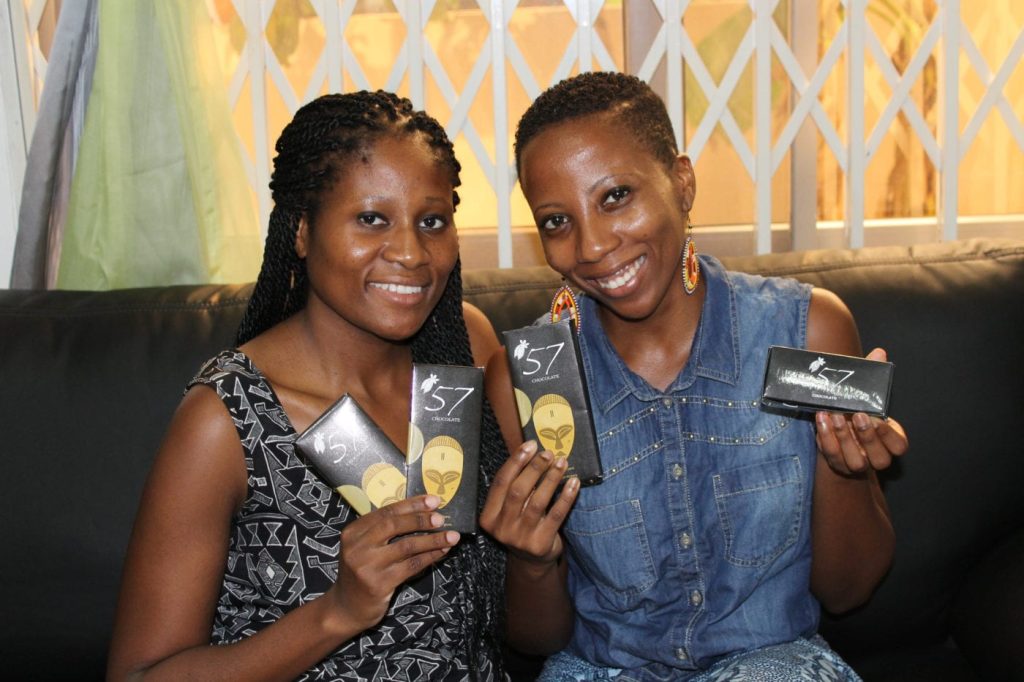
[bctt tweet=”The Addison sisters saw the need for a Ghanaian chocolate company before launching ’57 Chocolate” username=”no”] As the saying goes “an entrepreneur is someone who identifies a need in a market and finds a way to fill it”. This is what Priscilla and Kimberly Addison did when they realized that though Ghana is the second largest producer of cocoa in the world, the country produces little chocolate. Having recognized this, the sisters saw an opportunity to start an artisanal premium chocolate making company which they named ‘57 Chocolate –short for 1957, the year of Ghana’s Independence. The sisters upon starting the company in January 2016 applied for the 2016 Tony Elumelu Entrepreneurship Programme for Manufacturing where they were selected as one of the winners. This programme provided them with a small grant and networking opportunities to assist them in pushing their company further. Now, their aim is to set an example and demonstrate to the world that Africans can create products of the highest excellence and quality. What motivated you to choose this industry? Having spent time living in Geneva, Switzerland, we thought it was strange that Switzerland is known for its chocolate yet doesn’t grow cocoa, the core ingredient in chocolate. Meanwhile, Ghana is the second largest producer of cocoa, but produces very little chocolate itself. We saw a vast need for manufacturing of chocolate in Ghana and across the continent of Africa. In Ghana, the candy shelves of supermarkets and malls are overflowing with foreign chocolate bars, many undoubtedly made with Ghana’s very own cocoa. Having recognized all this, we were determined to use Ghanaian cocoa to create a Ghanaian brand of premium chocolate that is reputable locally and internationally. Chocolate really peaked our interest because it allows us a lot of creativity. We get to experiment with different factors such as how dark to roast the beans, the percentage of cocoa to include, and creating different flavors and pairings (e.g. sea salt, coconut shavings etc). We also love chocolate because it really is a healthy treat if you choose chocolate that is high in cocoa content. At ’57 chocolate, cocoa, as opposed to sugar, is always the first and main ingredient in our dark and milk chocolate. What steps did you take to start the company? What was/is your niche? We started the company before we even had a name for it. The idea came about in 2014; however, we made our first batch of chocolate in 2016. In between this time, we took courses on chocolate making and confections and trained with people in the field. We also did a lot of research and reading on the industry then we developed our chocolate recipes through trial and error. We would give our small-batch chocolate to family and friends who happily agreed to taste test. Also, we spoke to people already working in the industry to seek advice and support. [bctt tweet=”We developed our chocolate recipes through trial and error @57chocolategh” username=”SheLeadsAfrica”] Being from Ghana, it was important for us to create something that we were passionate about and that stood for a bigger purpose. Building our brand has been intricately tied to our desire to see Africans create products of premium value with the abundance of resources available. Hence the name ’57 Chocolate, which is short for 1957, the year of Ghana’s independence. 1957 was a revolutionary year for Ghana, not only because it was freed from colonial rule, but it is the year that gave birth to the nation’s “can do” spirit. The name ‘57 is meant to inspire a reawakening of Ghana’s 1957 “can do” spirit. From 1957 onwards, Ghanaians were creating and developing their own industries and products which resulted in a massive industrial boom. We want to return to that. ‘57 Chocolate aims to inspire the people of Ghana and Africa, to create and develop made in country products of high quality. Our niche is comprised of individuals who are looking for premium handmade chocolate that is made from bean to bar, and those keen on supporting Ghana’s industry by buying Made in Ghana products. How did you fund the company? Are there companies willing to invest in this industry? We funded the company with our personal savings, and with a few contributions from friends and family. We didn’t start with much, and we’ve been bootstrapping our way through this process. You have to make adjustments and sacrifices. As a silly, but true example, that pricey face toner from that fancy store we used to love for healthier-looking skin has now been replaced by a simple lime or lemon wedge. It surprisingly works just as well, though! It was important for us to commit to properly investing in our own company. Additionally, we applied and were selected as a winner of the 2016 Tony Elumelu Entrepreneurship Programme for Manufacturing which provided us with a small grant and networking opportunities. There are definitely numerous companies willing to invest in cocoa processing. It is, after all, a multi-billion dollar industry. What did you need academically and financially to qualify to start the company? There aren’t really any academic qualifications needed to start the company. Neither of us (Kimberly or Priscilla) has a background in chocolate making. We did need to take courses and get training on how to make and mould chocolate. How did you brand your company? What were your business and/or marketing plans when you launched the product? Our company is an artisanal premium chocolate company, as we wanted to fulfill this unique void in Ghana. Most importantly, we aim to keep Ghana’s cocoa in its truest form. Our chocolate is handmade in small batches, starting from sorting the cocoa bean by hand and processing it into the chocolate bar. Our chocolate is rich in cocoa, and made without any artificial colors, flavors, preservatives or weird things that are hard to pronounce. Additionally, our chocolate challenges the status quo of luxury chocolate being only a product of Europe. We are
Growing and marketing your brand via social media – The tale of 5 #MotherlandMoguls
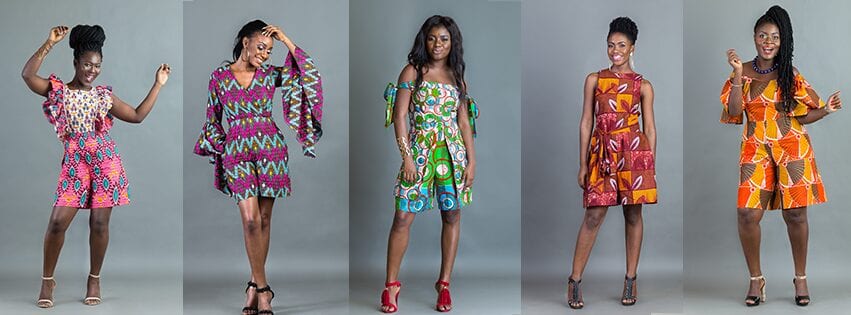
[bctt tweet=”When used right, digital media can be harnessed to make a direct impact in the society” username=”SheLeadsAfrica”] It is not often that one catches five aspiring women in the same spot. Well, maybe it’s often, but what are the chances of finding them engaged in a fashion project to raise awareness and funds for charity? These five #MotherlandMoguls are part of the ongoing Romperade Campaign, an online fashion charity event to raise funds for Living for the Needy Foundation. SLA contributor Emma Kwenu Smith caught up with the five who have successfully grown their brands online, to ask them quick questions about the impact of social media marketing on their businesses. What’s the role of social media in charity organizations and specifically for your brand? How has social media given you exposure as a brand/charity foundation? Caritas Aryee, Founder, Tatas and Friends Foundation. You would notice that, largely, Ghanaian charity foundations have always run on traditional media. It’s easier to hear a radio ad calling for donations for the Osu Children’s home etc. rather than a social media campaign for funds. This is the exact reason why Tatas and Friends Foundation has been a game changer in the industry. We started with social media and still the story has not changed. It has been a huge boost for us, and we encourage others to do same. First off, our publicity is done via social media. It is easy to get Kenkey for the Needy, (which is our major fundraising project) trending on platforms such as twitter and IG. Since we are a charity organization, we are unable to invest in traditional media for publicity. However, through social media, we receive access to grant interviews on TV and radio. In doing so, we have been profiled alongside other solid brands on platforms such as Starr Woman Project, TedX campus, Reach for Change and many others. And to think this publicity is free! We just had to capitalize. The second bit of using social media is that we are able to reach out to people both locally and internationally to raise money. People we do not even know, reach out to us so that they can donate to the cause. It is amazing! Social media is a powerful tool, it has shaped the Living for the Needy brand and has given us a lot of exposure. How do influencers promote a brand and how rewarding is it to include them when building your brand online? Jessica Naa Adjeley Konney, Fashion Blogger, Trends&Blendsgh. Influencers have become the new voices of brands —they are already largely recognized on social media for carving a niche. At this point, they have grown an audience that is interested in every content they churn out which is great for people who would like to patronize their services. [bctt tweet=”If you’d like to speed up the process of advertising a new brand, influencers are the way to go” username=”SheLeadsAfrica”] Being an influencer myself and having featured influencers as well, I can say that the exposure they give to a brand is immense. Featuring an influencer takes many forms —you can have them use and review your products and put up posts on social media. They can also be included in events and can feature in huge campaigns so that it gains traction. How do you know which digital audience to engage with for your brand and how do you decide which social media platform to use? Constance Efua Mensah, Creative Director, EfuaStanzz Fashion. It starts with knowing the general audience target for my brand. We are more skewed towards women’s clothing but basically, all our marketing is geared towards the confident woman. In that light, it is important that we build an identity that resonates with our targeted audience. [bctt tweet=”Choosing one social media platform starts with knowing & understanding your audience” username=”SheLeadsAfrica”] Images are essential for my fashion brand —it helps clients (both potential and existing) know what my brand is capable of providing. After all, to be comfortable enough to purchase a dress, you need to see it and assess it from all angles. As such, I mostly use Instagram and Facebook as a means of communicating to my audience. Facebook has a wider reach, meaning more people see our posts and it also allows for effective picture/video sharing. Instagram also has a beautiful and simple approach to marketing. Content, particularly on Instagram, is simply more shareable, easier to understand, and far more universal than other types of content. Also, it is full of people eager to connect with a brand on a more intimate and tangible level. Does social media directly affect your client base? Lamisi, MakeUp Artist, Lamisi Artistry. Truth is, I do get over 80% of my clients via social media. The rest is through word of mouth. [bctt tweet=”MUAs need social media, people need to see your work before trusting you with their faces” username=”SheLeadsAfrica”] I leverage heavily on Instagram particularly so that people see the images —it is an excellent platform for sharing all my works. However, the industry is very competitive, as such, it is important to make sure that your images are of good quality. Else, how will you stand out and win potential clients over? For brands like Coca Cola, Vodafone etc. there may not be a very direct correlation between the sales you make and your social media investment. However, for us in the beauty industry, it’s very plain. [bctt tweet=”Social media dictates our potential client base and ultimately, it is where we get our clients” username=”SheLeadsAfrica”] The more posts on your social media pages, the better? Why? Maud Mensah, CEO, WigClub That statement is indisputable. The more you post and engage your audience, the more visible you are. However, you do not want to share too much information that it suffocates them and drives them away, and you also don’t want to share so little that they become disinterested. It is important to find the right balance for your brand. As
Aisha Akiti: Your hard work can put you anywhere in the world
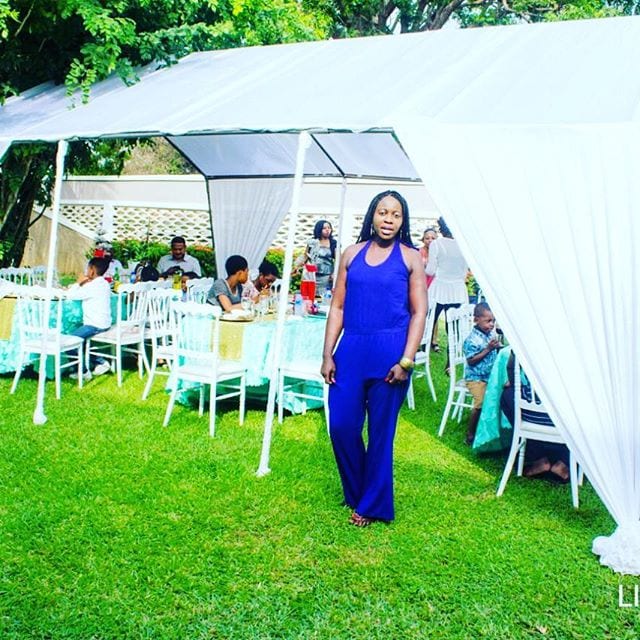
[bctt tweet=”The best way you can predict your future is to create it – Aisha Akiti” username=”SheLeadsAfrica”] Meet Aisha Akiti, CEO of Missashleybakes and Eventbyashley, a baking and events planning company. This business was founded a year ago after graduating from her degree. Being a mother of two kids there was no luck finding a job so Aisha decided to create one for herself. In fact, by the age of 10, Aisha was already selling candy, biscuits and doughnuts to her family and friends. Aisha’s favourite part of the business is that she is able to put her passion into reality. She also loves the daily interaction with clients as she helps them choose cakes and styles that match their personalities with the event. The bubbly entrepreneur from Tema, Greater Accra region of Ghana says even though she has had her business for a year she is still excited about it. We interviewed Aisha Akiti and here is what she had to say…. What do you bring into baking and styling that makes your business unique? I provide each client with signature designs and taste, I also treat clients like friends and let them get to know me. What has been your greatest achievement so far? My greatest achievement so far is that I’m able to create a job for myself. After graduating from university, I had no hope finding a good job. In addition, I am proud of the fact that I’m able to provide short-term job opportunities to other young people as and when my business allows. How do you plan on taking your business to the next level? I intend to take my business to the next level by introducing new products and services and hiring a social media manager to build my online reputation and engaging customers. Getting a mentor, someone who’s been there, done that and learned lessons the hard way is indispensable. Also important is having a good team, providing them with good working environment and training. I believe when the people around you improve, your business will improve. What four qualities do you think every young entrepreneur in your industry should have? I believe every young entrepreneur in my industry must possess these qualities: Passion and leadership skills: Your passion will drive you to turn your ideas into reality. Good numerical skills: You will need to measure ingredients and other basic items. Creativity: Anyone can bake but to stand out from your competition the element of creativity is necessary. With creativity, you’re able to offer something different from the crowd. You must be able to work under pressure. Baking is a lot about timing and it’s important to grasp the right time that may cause unnecessary stress. You’ll also need the ability to face the immense amount of stress when the end product does not turn out as expected. Teamwork is also extremely important in a kitchen. You need to be able to work with other people to make beautiful creations on a large scale. What has been your overall experience in this industry? My overall experience in this industry is that the best people, no matter who they are, who they know or where they are on the ladder can succeed with their work being recognised. Your hard work can put you anywhere in the world. Fear must be removed and you must focus on getting to where you want to be as fast as possible. [bctt tweet=”No matter who you are, you can succeed with your work being recognised” username=”SheLeadsAfrica”] If it takes one skill to be the best, what skill would you choose? Why? I would choose communication skills because having a good ability to communicate will help you to build up relationships, present ideas and most importantly make you a better leader. With good communication skills, you will be confident to talk and present your thoughts in public thus boosting your chances of success when you have to negotiate or persuade a client. A good leader is not the most intelligent one but the one who can inspire everybody the most. And how can you motivate people around you? Mostly using your words by communicating with them. What do you think other young women can learn from your start-up story? Young women can benefit from my start-up story knowing that in life you don’t have to depend on anyone, you can create your future. The best way you can predict your future is to create it. You are your own boss knowing how to bake, design and style an event with confidence, you can be anything you desire with hard work and determination. If you’d like to share your story with She Leads Africa, let us know more about you and your story here.
How Joselyn Dumas inspires you to achieve your career goals
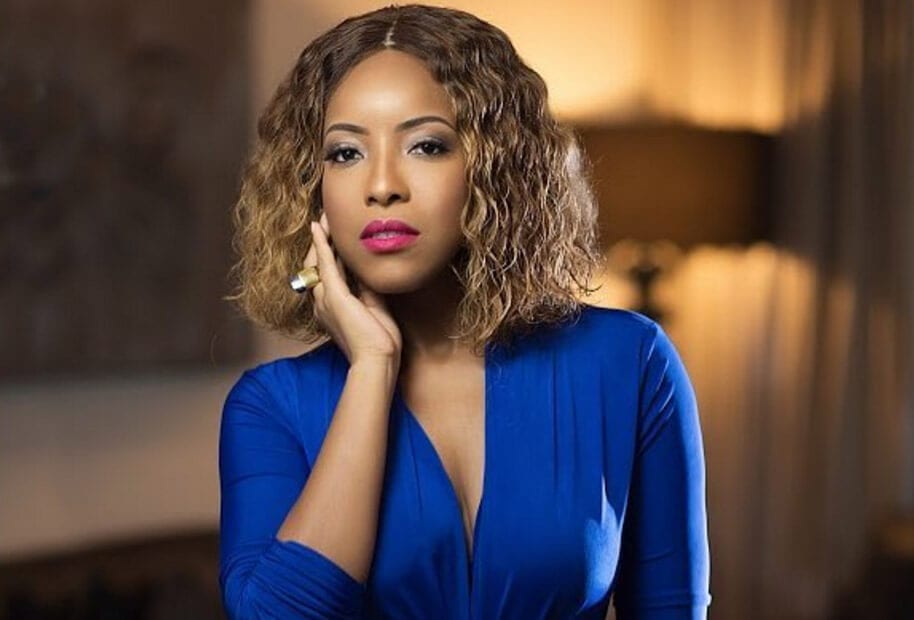
[bctt tweet=”@Joselyn_Dumas inspires herself and people like me every day. Be like Joselyn!” username=”SheLeadsAfrica”] When I was tasked to write an article on how Joselyn Dumas inspires us to achieve our career goals, I was stumped. Simply because of all the Ghanaian celebrities (most of whose lives I do not give much thought to or follow on a regular basis, for that matter), Joselyn Dumas was part of my B-listed celebrities. Honestly. But research and knowledge always changes perspective and perception, and after reading and reading all the savoury and unsavoury articles alike, I am delighted to announce that if you were like me, you can be a changed girl now. Unlike what others may think, Joselyn Dumas can actually inspire you to achieve it all. Here is how: 1. Guts She had the guts to quit her job as a paralegal in London to pursue her dream of being a TV personality in Ghana. So how do you contextualize this? It’s simple. Are you stuck in that dead end job, unhappy with your life and atrophied dreams? Leave and don’t look back…with caution please. Follow your passion. Go to your Ghana to be what you want to be. Be like Joselyn Dumas. 2. Body positivity As a woman, Joselyn is endowed —she is all sorts of curvy and beautiful. Unfortunately, some people in the public refuse to stop staring at those hips and start focusing on what she does instead. She has been at the centre of media attention because men won’t stop gawking and ladies will not stop hating because their men are gawking! In spite of this, Joselyn keeps a calm, unruffled demeanour and unashamedly wears clothes that flatters her —not caring what anyone thinks. So for you reader, wear what you want to and do not be ashamed of that body. On a deeper level, this goes to say that you should be true to yourself. It is the first wise step which when taken, will resonate positively in your career goals. [bctt tweet=”Leave and don’t look back…with caution please. Follow your passion. ” username=”SheLeadsAfrica”] 3. Wellness Although the cynical Ghanaian public have accused Joselyn of passing off a gastric by-pass as a weight loss plan to justify her figure today, I choose to remain oblivious and believing. Of course, Joselyn knew then that the Ghanaian public can be unforgiving when it comes to overweight TV personalities, so she made the move to join the Weight Watchers’ Club. She had a career goal in mind, and made physical preparations to be suitable for that role. You also have that career goal in mind? Are you reading, learning or losing weight to make the move easier? Consider doing what it takes to get where you want to be. [bctt tweet=”There is a place for a social work. Not every day, yourself. Sometimes, others.” username=”SheLeadsAfrica”] 4. Giving back Being a believer in social action, Joselyn volunteered alongside Lucy Quist, MD of Airtel Ghana to participate in a STEM (Science, Technology, Engineering and Mathematics) initiative. Aside that, she has the Joselyn Canfor-Dumas Foundation which focuses on social issues such as providing for children, widows etc. What should this mean to you? It simply means that there is a place for a social work. Not every day, yourself. Sometimes, others. “A noble leader answers not to the trumpet calls of self-promotion, but to the hushed whispers of necessity.” ―Mollie Marti 4. Sharing your passion Forget that Joselyn is brand ambassador of Range Rover Evoque and Jobberman Ghana. Forget that she was the host of “The One Show”. What does Joselyn have to call her own? There is a crop of entrepreneurs sweeping across the African continent and Joselyn is one of them. She is following her passion to make sure those who share in it also have jobs to do. Joselyn is the founder of Virgo Sun Production Company Limited. What about you? Will you feed the entrepreneur in you? Will you allow others to share in your passion? [bctt tweet=”Are you acting professionally in any role you are playing like @Joselyn_Dumas?” username=”SheLeadsAfrica”] 5. Perfecting your profession Finally, you remember the movies “Perfect Picture” or better still, how about “Love or Something Like That”? You don’t? That’s fine. But you cannot tell me that you do not remember the sensational “Adams Apple” which featured Joselyn as leading cast member, Jennifer Adams. Due to this and other appearances, Joselyn has been branded as part of the professional actresses who are glamorous and best dressed. I did not make this up. Nkonkonsa.com did. So my question is this: Are you acting professionally in any role you are playing? Are you executing that role to perfection? I wish I had a slick conclusion. But this cuts it for me- Above lies the story of Joselyn Dumas. She inspires herself and people like me every day. Be like Joselyn. She can inspire you too!
Senanu Arkutu: I decided to follow a passion that I hadn’t realised was a skill
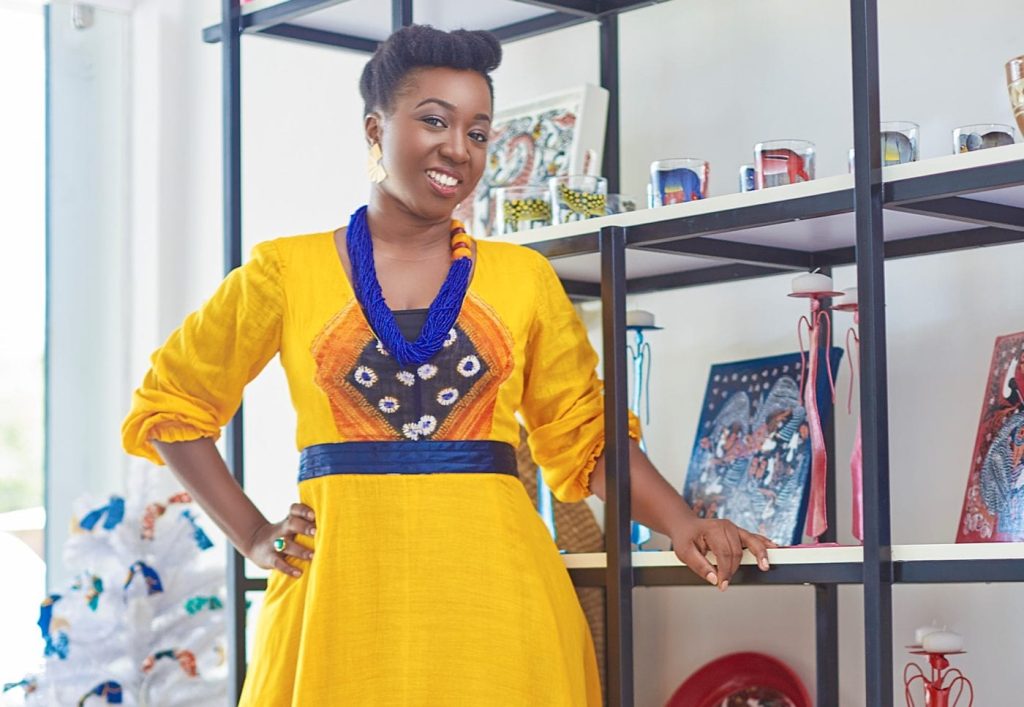
[bctt tweet=”Senanu Arkutu: The high quality is here in Africa but you have to do quality control ” username=”SheLeadsAfrica”] Senanu Arkutu is the founder and CEO of DAAR Living, an interior styling firm that is diversely African, layered and interwoven, antique and contemporary, with European and Arab influences. While pursuing a career in Reproductive Health and International Development, she realised she had a flair for interior design after decorating her own home. Spurred by the compliments she received, she gave up her day job and opened DAAR Living in 2013. Senanu is also the set designer for the hit series, An African City. Her flagship store opened November 19, 2016 in East Legon, Accra, Ghana. How does one switch from a career in international development to interior design, and what transferable skills have helped you in your new calling? Hahaha! It was time for a change after a 12-year career —that I loved, by the way. I decided to follow a passion that I had not realised was also a skill until I designed and decorated my own house, and the warm compliments started coming. Transferable skills from a career in sexual health and family planning, I find new ones every day! But the most important one to date is listening to client’s concerns and finding an appropriate solution that is sensitive to their specific needs and feelings. Conducting consultations helps. You’re Ghanaian but grew up in Southern and West Africa, which obviously have influenced DAAR Living. Where else do you draw inspiration from for your décors? …And East Africa where my personal style probably leans towards. I draw inspiration from my mum, my clients, other designers, art and culture, trends, life. What have been your highest and lowest points since starting DAAR Living three years ago? The highest and lowest points all come together in establishing our first store. I hired an established design and construction company to carry out the design changes I wanted done to the retail space. This was a team that the landlord was comfortable with as they had done some work for another retail space in the same building, which I had seen. The experience was a disaster. They were rude. Communication, follow-up and quality control were terrible and on top of that, a four-week job took them four months to complete! My rent money just went to waste (Accra landlords insist on two years rent upfront whether you are a start-up or not). The highest point was the night I laid out and merchandised my store for the first time and went outside to see what it looked like from the shop window —I had a moment! With a physical space all done up as I wanted it, and DAAR Living signboard up in lights, it suddenly seemed like DAAR Living finally actually existed. [bctt tweet=”Senanu Arkutu’s highest point was the night she laid out her store for the first time ” username=”SheLeadsAfrica”] In an interview, you voiced your desire to see African arts and crafts showcased in other ways besides a market setting or market style setting. Would you mind elaborating? I would love to see more of quality African art and crafts being showcased in all their glory in a contemporary retail, gallery-like space, and not always in a busy market where it is not easy to see the skill and beauty of the piece. You do not see this often in Ghana or the rest of the continent, except in South Africa and, now, of course, Alara in Lagos. The new DAAR Living store aims to be the contemporary retail space showcasing African functional art and craft in Accra. We want to be front and centre in this emerging story. [bctt tweet=”Senanu Arkutu: I’d love to see more quality African art & crafts in a contemporary space” username=”SheLeadsAfrica”] You’re the principle set designer for the hit African series, An African City. How did you get the deal for the show and end up collaborating with Christie Brown, who designed some of the beautiful clothes on the show? Nicole (creator of An African City) and I are good friends. We believe in each other’s work and see the value and strength in collaborating. I offered my house for use in season 1, and by Season 2 the AAC team had realised the added value of set design and how it plays a large part in story-telling. DAAR Living was better established by then, but there was no budget allowance for set design, so Nicole turned to me and Nana Spio-Garbrah of Blueprint Africa (Assistant set design). Of course, we were glad to help Nicole, and there was also the added potential exposure An African City could give. As for collaborating with Christie, when I began DAAR Living I wanted to launch a brand and begin building it and its community immediately. I knew that the products and services on offer may change slightly, several times, but the concept was clear and would remain the same. As a client and lover of Christie Brown, I could not get out of my head how pieces of mine reminded me of outfits of Aisha’s (founder of Christie Brown). So I called her with an idea for an exhibition that brought interiors and fashion together to launch my brand and she loved it! She encouraged me, offered her then new flagship store for the launch, and the rest is history. How does DAAR Living ensure on-time delivery and high quality across all its offerings, especially since décor and furniture pieces are sourced from across Africa? Good question. The high quality is here in Africa but like everywhere else you have to do due quality control. This is my job and it takes a lot of back and forth but we get there. For on-time delivery, firstly, I do not offer items for sale that are not already ‘on the shelf’ —online or in the physical store. Secondly, if a client is making a bespoke order and I think
